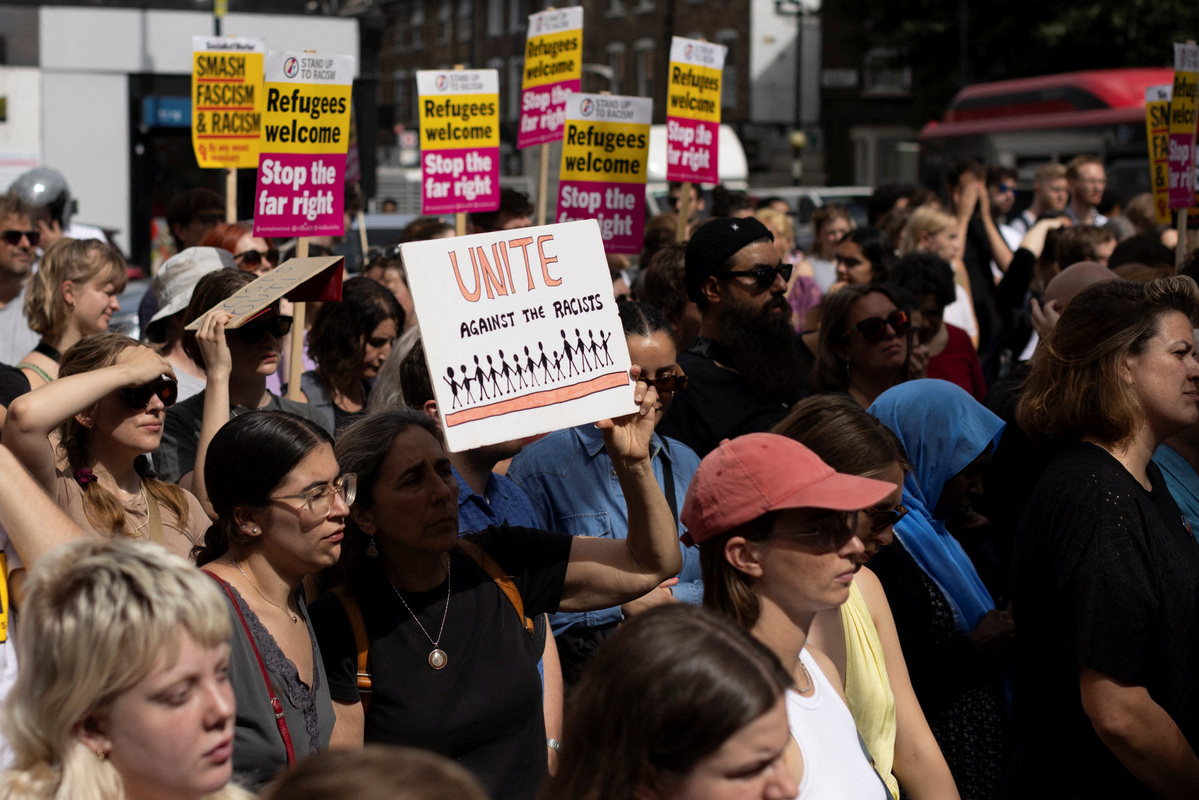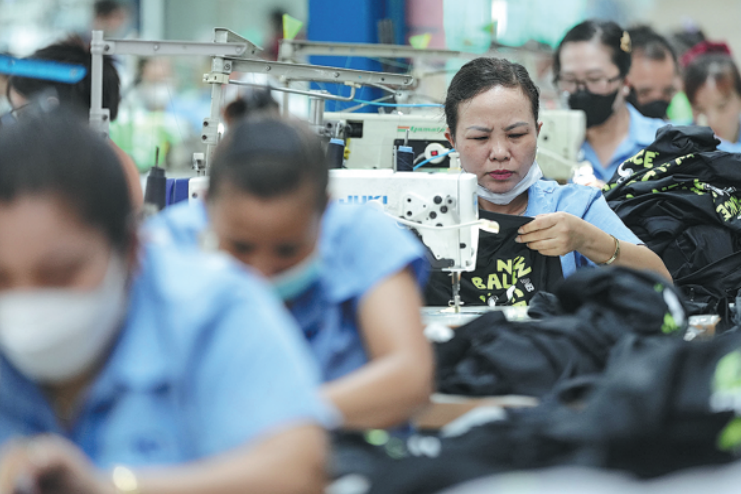Anti-immigrant riots in UK first big challenge for Labour government
By SHAO XINYING | China Daily Global | Updated: 2024-08-12 09:21

Barely a month after taking office, British Prime Minister Keir Starmer is facing his first major challenge with violent protests raging in several cities across the country. Anti-immigration sentiments, fanned by the rise of the far right in the United Kingdom and compounded by the cost of living crisis, can be blamed for the current state of affairs, experts said.
After a month-long honeymoon during which he made his international debut at the NATO summit in Washington and attended the opening ceremony of the Paris Olympics, Starmer now has the grim task in hand of quelling social unrest at home.
Violence broke out in a number of places after rumors circulated online that a Muslim immigrant was behind the July 29 stabbing in Southport, northwest England, which left three young girls dead.
Protesters took to the streets and stormed mosques and hotels housing asylum-seekers in major cities, including London, Liverpool, Plymouth and Belfast.
"The rioting is politically driven," Danny Ewart, a Portsmouth resident, told China Daily. "I am frustrated by the direction this country is headed, but we need to come together and work on our differences. We also need to manage the immigration numbers as it's not sustainable."
Starmer has condemned the riots, calling it "far-right thuggery".
British monarch King Charles has called for unity and understanding after the riots, a Buckingham Palace spokesman said in a statement on Friday.
"It is the first major challenge facing Starmer," Xu Ruike, associate professor of British politics and foreign policy at Beijing Foreign Studies University, told China Daily.
"Although it is a rare event, it reflects the underlying issues in UK society, in particular the rise of the far right," Xu said.
"Rioting is entirely down to inept Conservative and Labour governments," Billy Bessey, who took part in anti-immigration demonstrations in Portsmouth last weekend, told China Daily.
The rioting is wrong but the blood is on the hands of politicians, he added.
"Anti-immigration sentiment is just the trigger," Huang Fei, associate professor at the School of International Studies and research fellow at the School of Global and Area Studies of Renmin University of China, told China Daily.
Huang said the financial burden of households worsened after the Russia-Ukraine conflict, sending inflation to more than 10 percent in 2022. Extra checks and tariffs after Brexit and the uncertainty of the talks on free trade thereafter have added to livelihood woes.
The lackluster performance of the British economy in recent years also added to public dissatisfaction with the government. The GDP grew by 0.1 percent year-on-year in 2023, according to the Office for National Statistics. The government declared at the end of July the country was "broke and broken".
Net migration was unusually high in 2023, at 685,000, driven by an increase in non-European Union citizens coming to the UK, according to the Migration Observatory.
"The large number of migrants is putting great pressure on the society, leading to reduced social welfare for the general public, especially the ones in the lower income segment," Huang said.
An increasing number of people are growing angry with the large number of illegal migrants coming to the country and anti-immigrant sentiment was a major factor in the Brexit referendum vote, Huang added.
"Reform UK is the only way we will ever get to control our borders," Bessey said.
At the election last month, the Reform UK party led by Brexit campaigner Nigel Farage won 14 percent of the votes, but only gained five seats.
"It is underrepresented in parliament as the UK's first-past-the-post voting system favors the bigger parties," Xu of Beijing Foreign Studies University said.
The riots come amid a broader right-wing populist surge in European countries. During the European Parliament election in June, far-right parties made major gains. In France, President Emmanuel Macron dissolved the lower house of parliament in a bid to block the far-right National Rally party from coming to power.
"It reflects the political polarization, further complicating the political landscape, combined with a crisis of trust in government," Huang of Renmin University of China said.
Police have blamed peddling of false information online, amplified by social media, for the violence.
"The misinformation that was widely circulated plays up to the insecurity felt by the public, fostering a willingness among individuals to instinctively believe the social media posts," Xu said.
The Online Safety Act, designed to regulate social media companies, was passed in October but is not expected to be enforced until next year.
Cabinet Office minister Nick Thomas Symonds said on Friday the government would revisit the law's framework.
"We need to be mindful of what information we share. Otherwise, it sets a very dangerous precedent," Ewart said.
Nick Ive contributed to this story.
shaoxinying@chinadaily.com.cn
























